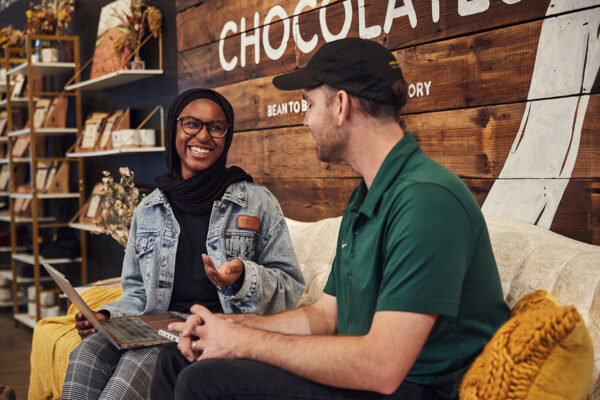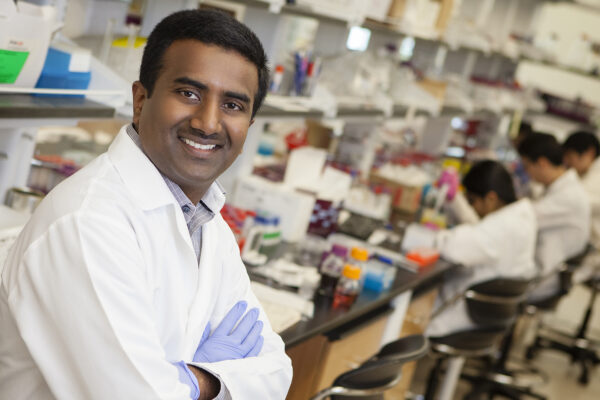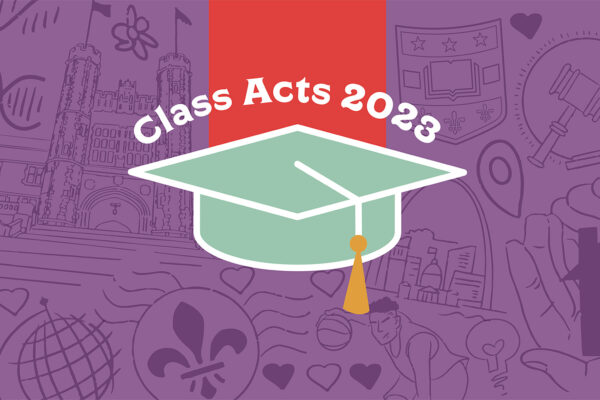After graduating in May with a degree in biomedical engineering from the McKelvey School of Engineering, Carolyn Duncan will work as a researcher at Auragent Bioscience, a company with Washington University in St. Louis roots. The company’s imaging technology is licensed from the university. Its founder is Srikanth Singamaneni, the Lilyan & E. Lisle Hughes Professor of Mechanical Engineering & Materials Science at the McKelvey School of Engineering. Its CEO, Shaker Sadasivam, is an alumnus of Olin Business School, and its director of research is Scott Crick, a McKelvey Engineering alumnus.
“The company feels a lot like WashU in that everyone is so smart and supportive of one another,” said Duncan, who is from St. Louis and interned at Auragent Bioscience last summer. “It’s exciting to see where research that started in the engineering school can lead.”
Here, Duncan shares more about her time at McKelvey Engineering and her internship experience.
What was your favorite engineering class?
One of my favorite classes was ‘Engineers in the Community,’ where we worked with a community partner on a project. For our project, we worked with Jean Ponzi of the Botanical Garden’s Earthways Center to make an app about native plants. We went to the Brightside St. Louis, Missouri Botanical Garden and Cortex to see their sustainability efforts and toured campus to learn more about sustainable landscaping. We also went on a lot of field trips, where we learned a lot about St. Louis’ history. I’m from St. Louis and a lot of that information was new to me. As engineers — as people who live here — it’s important to have that education.
How did you get connected to Auragent Bioscience?
There is a great summer program for biomedical engineering majors that provides a stipend to intern at local startups. When I interviewed at Auragent, I didn’t fully understand the science behind what they were doing, but it sounded really cool. Basically, they’ve developed a super-bright fluorescent material that you can use to quickly test for different biomarkers. From day one, I felt like I was making a contribution. They were like, ‘OK, I need these 10 solutions. Make them.’ And I was like, ‘OK.’ The learning curve was huge, but fortunately, everyone there is nice and helpful. And the work is just really cool. Those are the big reasons why I’ve decided to stay.
Did that internship impact your engineering education?
It really broadened my interests. For instance, I hadn’t studied a lot of material science before. So now I’m taking the polymer class and learning more about how materials stretch, bend and break. It also opened my eyes to entrepreneurship. The startups that we worked at were all at different points and it was interesting to see companies at different stages, from the research and development stage to the production stage. It also introduced me to Cortex, which I really didn’t know much about before. It’s such a cool place — everything feels so connected. A lot of the buildings are physically connected, the people are connected. There’s just a great energy. St. Louis is one of the best cities in the country for startups, and Cortex is a big reason why.




